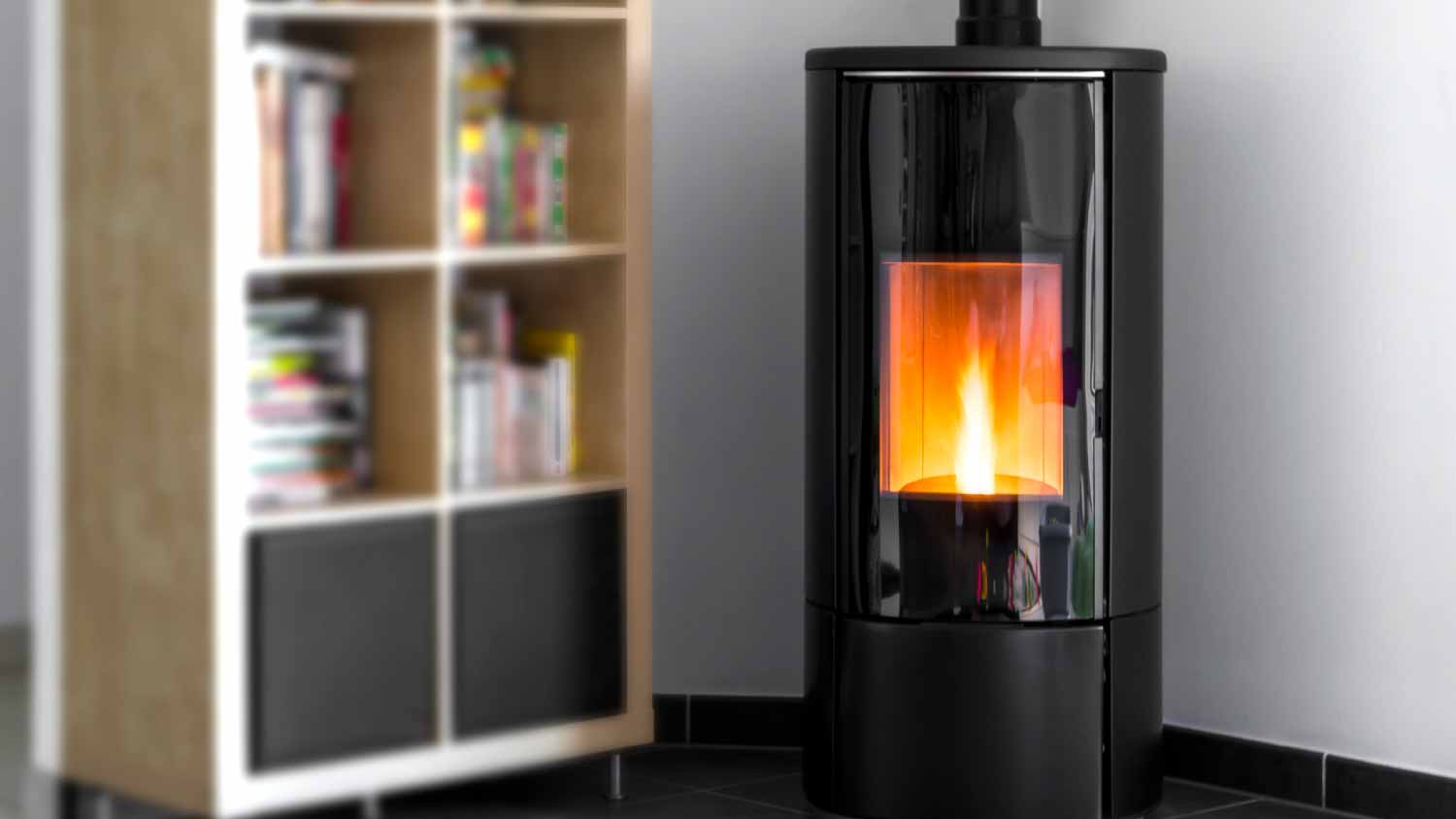
Whether or not the cost of installing a pot filler is worth it depends on your kitchen needs. Learn why the faucet itself is often the least expensive factor.
Good news: You can likely keep cooking for a decade or longer


For many, the kitchen is the heart of the home—and the stove is the heart of the kitchen. But so far, we’ve yet to invent appliances that last forever. So how long can you expect that heart to keep beating?
While the general lifespan of stoves is about a decade to a decade and a half, the specifics do depend on which type of stove you have. For example, how long gas stoves last is different than how long pellet stoves do. Let’s take a closer look.
Electric stoves have an lifespan of about 10-15 years, or an average of about 13 years of use.
Gas stoves share a general lifespan of 10-15 years with their electric counterparts, but are generally considered a bit more reliable and durable—so you might expect to be able to eke out as many as 18 years of use.
While pellet stoves also have a base life expectancy of about a decade, if they’re well maintained, they could last as long as 15 or even 20 years. That’s a lot of warmth to enjoy.
Along with type, there are other factors that can influence how long your stove will keep working. (The good news is they’re all under your control.)
As is true with just about every product on the market, opting for a higher-quality stove will likely translate to a longer stove lifetime. Stick with reputable brands and consider springing for professional service from an appliance installer near you.
By wiping down your stove after every use, regularly doing a deeper cleaning regimen, and inspecting its parts at the first signs of trouble, you’ll likely get a leg up on problems before they get worse.
Obviously, the more you use an appliance, the faster the rate of wear-and-tear will be—but that doesn’t mean you should avoid cooking your favorite meals on your stove just to extend its longevity. With proper maintenance, even a well-loved stove can last a good long while (and even replacing your stove once a decade is likely cheaper than eating out all the time).

Here are some quick maintenance tips for keeping your stove in tip-top shape—which will hopefully extend its lifespan.
Keeping your stove whistle-clean is one of the best (and cheapest) ways to increase its longevity. Give your stove at least a cursory wipe-down every time you use it, and do a deeper clean on a weekly or monthly basis. Your owner’s manual may have some information about best practices, but keep in mind that you usually can (and should) disassemble the burners to clean them more thoroughly every now and again.
For most stoves, a mixture of vinegar and dish soap will do a surprisingly good job of cutting through even cooked-on messes. Use a rag or sponge rather than harsh scrubbers, which can scratch or mar the surface of your cooktop.
If it’s a gas stove, don’t give into the temptation to stick toothpicks or kebab skewers into the burner holes! A soft straw brush or pipe cleaner is your best bet for removing food or other particles that might be clogging your burners.

Although we all want our appliances to last as long as possible, there comes a time when replacement is the right option. Here are some signs that time may have come for your stove.
For an electric stove, you may notice the stove burners simply aren’t heating up as quickly or as hot as they used to, leading to uneven cooking. With a gas stove, you may notice the flames are flickering rather than steady or red and orange rather than blue. Either way, at the very least it’s time to call a repair technician—and it may be time to go ahead and get a new range.
If your stove is making screeching or clicking noises—or you smell gas or a foul electrical odor—those are signs of what could be more serious internal problems.
Once you notice large amounts of rust on the cooktop, cracks or chips in enamel or ceramic, or fractures, replacement time may be drawing nigh.
From average costs to expert advice, get all the answers you need to get your job done.

Whether or not the cost of installing a pot filler is worth it depends on your kitchen needs. Learn why the faucet itself is often the least expensive factor.

Several factors impact dryer vent installation cost. Use this guide to learn what affects the cost, and how much you should budget for this project.

Dryer repair costs as little as $10, but sometimes, replacing your dryer is more cost-effective. But if you have to make repairs, here’s how much it’ll cost.

Overwhelmed with dishwasher options? Learn about the different types of dishwashers to increase efficiency and space in your kitchen.

A frozen washing machine drain can interrupt your laundry routine. Learn what to do when your washing machine drain is frozen and how to prevent it.

Not sure who to hire to repair a wood pellet or gas stove? See which pro to call, what they do, and how the repair process works.